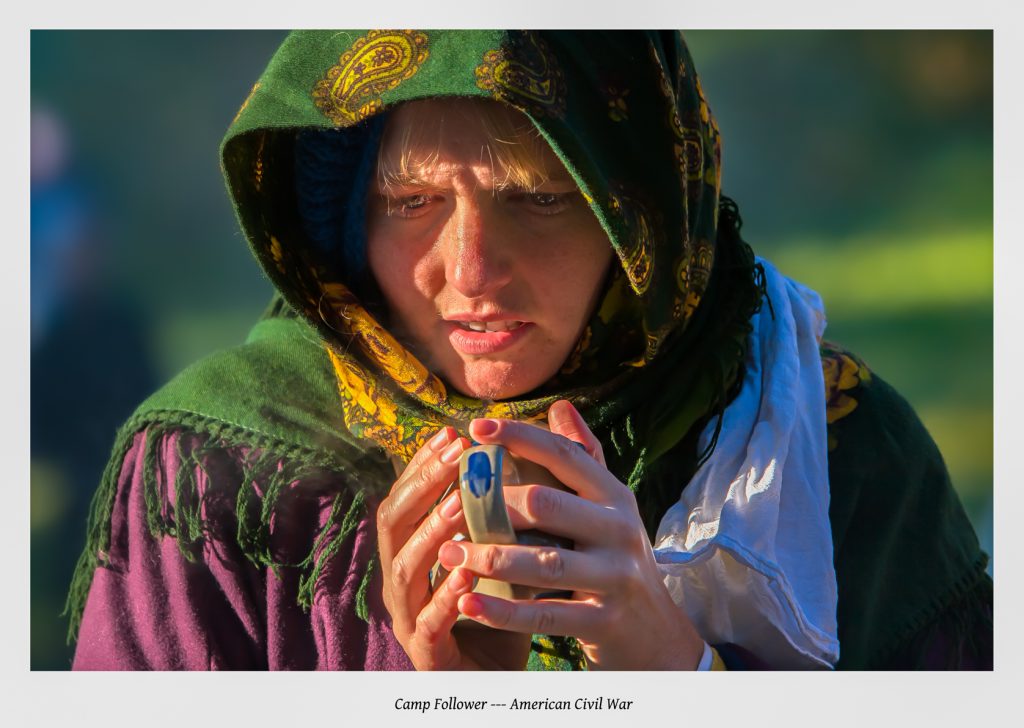Concerning Camp Followers
Our subject’s livelihood — Camp Follower — has taken its place among disappeared categories. It is a job title now as antiquated as the milkman, switch-board operator and video-store clerk. Before the rise of logistics experts and corporate vendors, historical armies on the move in warfare depended on informal support: food needs preparing; gear needs mending; everything gets filthy and must be scrubbed clean — especially officers’ uniforms. Medical care must be close at hand; maimed soldiers need letters written; some of the men — abiding so close to death — developed insufferable sexual anxieties they were desperate to cure.
It appears women exclusively provided these services up to the mid-19th century. Widows labored this way; many younger women displaced by the war became destitute refugees and joined the irregular workforce. The woman represented here falls into the domestic class of laborers, and is not among the prostitutes. The Soiled Doves — as the sex-workers were called — formed a set-apart society.
The actress in our image I encountered at a campsite (a staged encampment) outside a make-believe Confederate Army bivouac, among the real and undulating green hills of 21st century Kentucky. She silently and with poverty of spirit seems to praise her God for that hot mug on this chilly October morning. The woman appears dazed, and not just momentarily; given the cascade of world-historical events disrupting her life, we assume she walks around daily in this state of chronic vulnerability.
There is something else disturbing about this photograph — it is the blankness of the woman’s expression, which simulates a death-mask. Her fingers, too, have a cadaverous aspect. That clutching of the hands might foreshadow her own death among the hundreds of thousands of casualties suffered in her 19th Century war.





